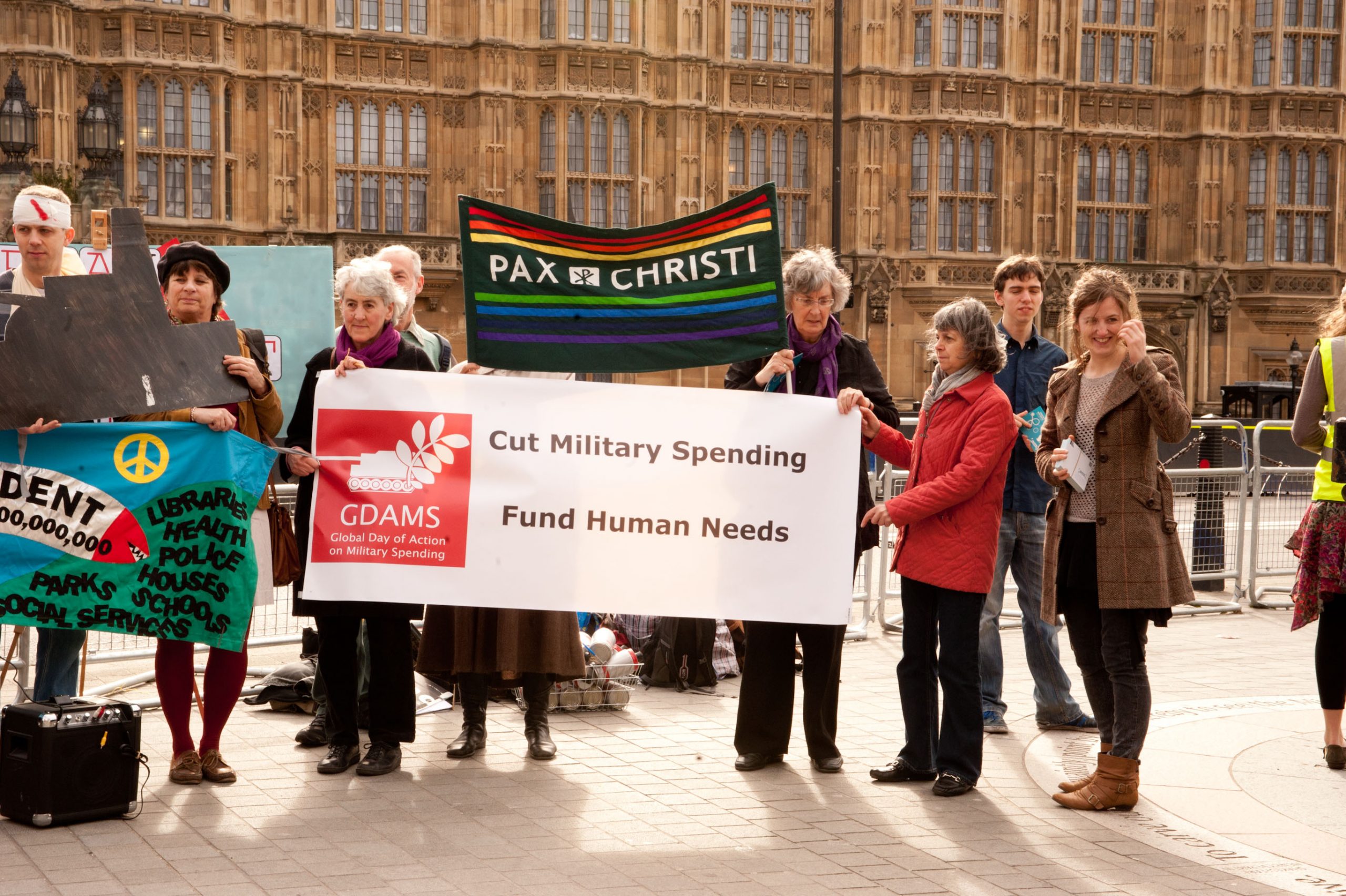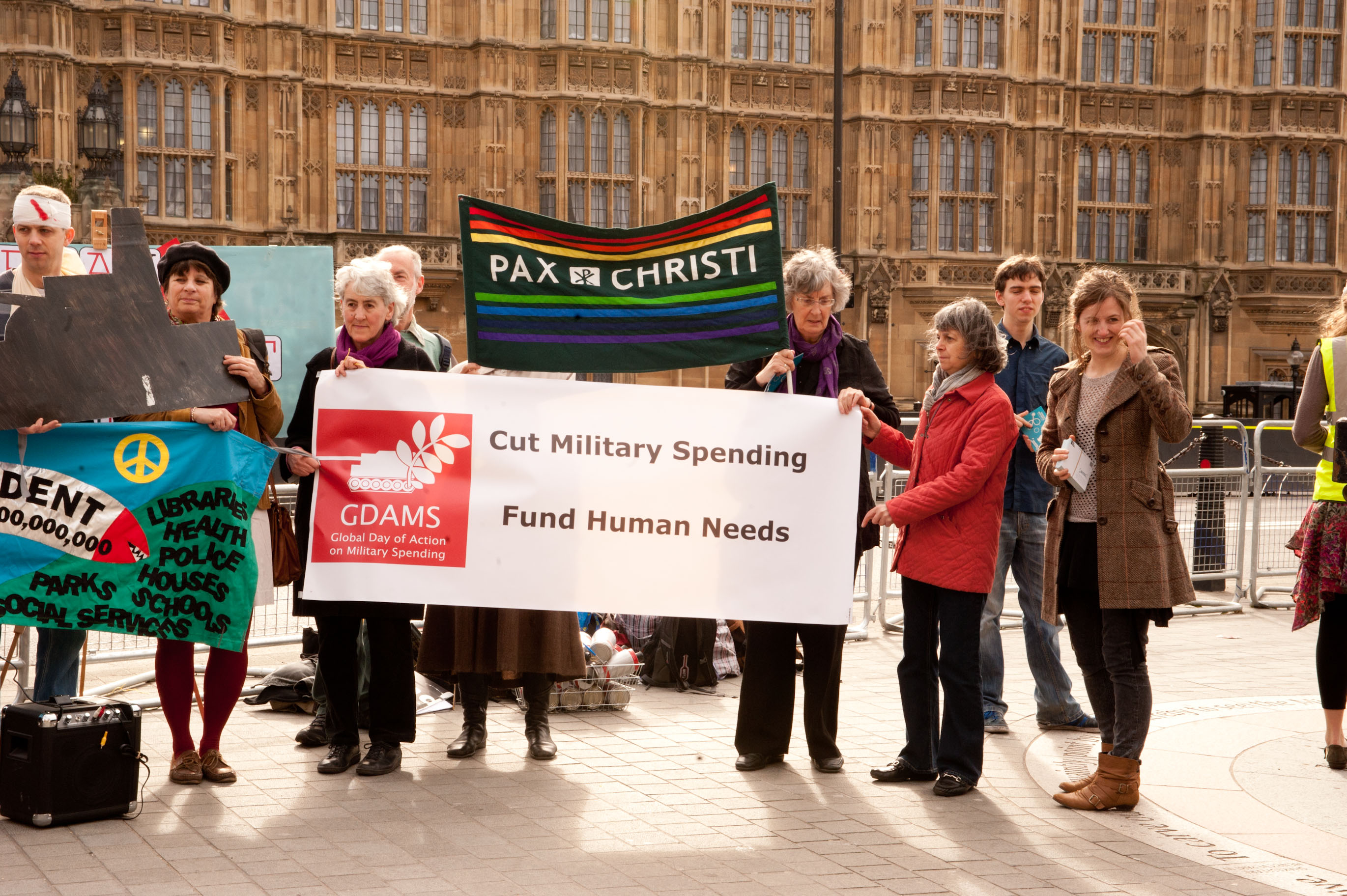Are the British and European arms industries partially to blame for the euro crisis and the austerity craze it inspired? According to a new report by Frank Slijper of the Dutch Campaign Against the Arms Trade and the Transnational Institute, the answer may very well be yes.
Excellently written and researched, Guns, Debt and Corruption: Military Spending and the EU Crisis spotlights the link between arms expenditures by economically troubled European states, their debt problems and the severe austerity regimes they are currently implementing.
Drawing upon a wealth of documents, data and sources, Frank Slijper presents in clear and concise terms the contrast between austerity programmes, with their accompanying budget cuts, and the continued squandering of hundreds of millions of euros on military equipment.
The central message of the report is that the waves of public service cuts in financially troubled euro zone countries, such as Greece, Spain, Portugal and Italy, could have been partially, perhaps substantially, alleviated by reductions in military expenditures. Amid the political crisis, accompanied by choruses of doomsday austerity rhetoric, these countries have persisted in hugely expensive budget outlays for weapons and military equipment while simultaneously making dramatic cuts to public and social services.
Arms spending still thrives amid austerity
Indeed, one of the most striking findings of the report is that despite many governments’ claims of reducing military expenditure, the bulk of any such cuts come not from reductions in weapons purchases but from reducing the numbers of military and civilian employees.
Accordingly, the purchases of bombs, tanks, guns and other military hardware continues unabated while many more people find themselves unemployed. Paired with cuts in social services this translates into a doubly hard scenario for those involved as they not only lose their jobs and income but also the vital social services and welfare benefits that they would otherwise rely upon while seeking alternative employment.
The report presents a stark case of governments prioritising corporate over public welfare. Arms companies continue to do well even in this age of austerity, maintaining that they are essential to protect national or EU security and are a valued reservoir of skilled jobs. Yet the EU is under no immediate external or internal military threat and employment in the arms industry has been in steady decline for years.
EU Arms Export browser
One of the limitations of the report is that it does not specifically deal with the UK arms industry and how it compares to other EU members. By happy coincidence, a new EU Arms Export browser developed by Campaign Against Arms Trade (CAAT) in partnership with the European Network Against Arms Trade (ENAAT) allows anyone with an internet connection easy access to such information.
The app allows users to quickly isolate arms trade data for any EU country including arms export licence values in euros of each exporting and destination country, and categories of military equipment for the 15 years from 1998 to 2011. It provides the perfect complement to Frank Slijper’s research and shows that the UK and its heavily subsidised arms industry are indeed major players in the European arms market.
Ultimately, the conclusion has to be that despite the heavy austerity rhetoric European governments continue to lavish massive amounts of public money on weapons – bad at any time but especially harmful while governments wield the austerity axe on essential social services.


